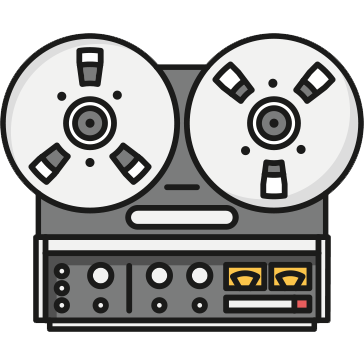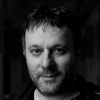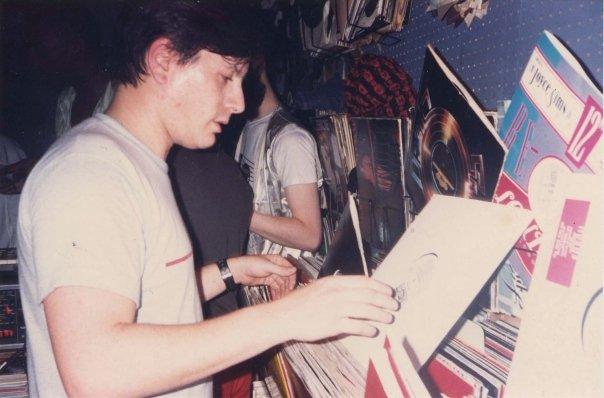Bruce Forest: Many of you know the story of my scariest night - my first night at Better Days after taking over the whole week residency from Tee Scott. I was so terrified, I could have used a Depends. It did not go well. But eventually, the love of the children, two very special people (Cynthia Ann Cherry and David Steel) helped me out, coached me on record selection and were always on my floor. Letting the children teach me how to play changed everything. I ended up playing there for nine years and rare was the night it wasn't absolutely packed. It was the greatest nine years of my life.
................
Ok, story time. The absolute scariest moment in my life was the first night I took over Better Days from Tee Scott in 1980. I had absolutely no right to get the job at Better Days. I didn't get it because I was a good DJ, I got it out of sheer luck, a disinterested owner and being in the right place at the right time. I was a skinny white boy from Queens who knew nothing about Better Days dance music.
In 1979, I asked Yvonne Turner if there were any clubs in NY where I could go and not hear "that fluffy-ass pop disco music." She immediately sent me to Better Days to hear Tee. He was far and away the best DJ I had ever heard, and I ended up going there at least four nights a week. If you knew BD you'll realize that a single, straight, pale-white Queens Jew stood out just a bit. And I was not a dancer, I just sat and listened. And learned.
After about six months, I came in one night and Tee was not playing. The guy was really good, but not Tee. So, when the owner crossed the dance floor I approached him to ask who was playing. The owner was a man of varied names (he changed them a few times to avoid the IRS..let's call him Dave) and he looked and sounded like James Cagney. Additionally, he carried a coffee can filled with cash and a snub nosed .38 revolver in his right hand. I asked if he was the owner. Yep. I asked who was playing, because it wasn't Tee. He said "Derek Davidson, think he's any good?" I said I thought he was great, and prepared to walk off when Dave asked how I knew the difference, and was I a DJ? I said I was. He asked if I wanted to audition. Hm, I thought: ok, the guy is either a bit kinky, or needs an off-night guy.. I agreed and Dave told me to show up the next Tuesday morning. I brought a few records, and Dave said to play, so I played a few tunes and noticed Dave was in his office with the door shut. Uh, ok. I played for about a half hour, noticed no one was listening, so I shut down and walked into the office.
"You're fucking great kid, you want a job?"
"Uh, sure. What night?"
"All of them. I'm firing that fat fuck Tee. And his buddy. (Larry Patterson.)”
"Um, ok? When are you going to do this? When would I start?"
"I just did it. You start tomorrow night."
I had no records. Tee was taking his Thorens turntables and I had none.
I borrowed another DJ’s 5100s and spent $500 at Downstairs Records. And started playing Better Days in the summer of 1980. And they hated me. You haven't lived till you've faced 800 REALLY angry queens, standing with their arms crossed looking at you, shaking their heads, yelling unpleasantness about my parentage and the droopier parts of my anatomy. They threw bottles at the booth. They poured beer over the booth glass. Not happy children. This went on for a while, and finally Dave called me into the office and said that while people said I was a pretty good DJ, the business was plummeting, and Dave didn't think it had to do with Tee, he assumed it was because I was white. So, he said he was letting me go, and hiring (on my recommendation) Timmy Regisford. I asked Dave to please let me keep Thursday and Sunday (dead nights) and let Timmy do Wednesday, Friday and Saturday. Fine.
Timmy came in and of course, tore it up. They loved him, and they should, he's great. But to me, he wasn't doing anything I couldn't do. I did my Thursday and Sunday nights, and they got slower and slower. And Dave started painting the dance floor ceiling. The next Friday, Timmy was booked, so I was to do the night. I took one of the tarps that lined the walls for the painters, and hung it so it completely covered the booth. At 9PM, I went in the booth, locked the door, and played. The crowd thought it was Timmy, and had no negative vibe at all. I played the night, they loved it, and as the lights came up and people walked out, I pulled the tarp down, and smiled. They started applauding. Timmy left a short time later, I took over all five nights, and stayed there nine years. B)
Better Days was about music. The club was 85% dance floor, and the sound system (built by me and Shep Pettibone) was a hybrid Richard Long/Alex Rosner system that was far too big and powerful for the space. The main dance floor was a 75’ circle with 4 speaker stacks, each one with a Bertha bass bin at the bottom The much larger Paradise Garage only had six. When Better Days was fun and pumping it was, as François says, like church. The temperature was well over 40C, and the mirrors on the walls looked like a shower, covered in steam and sweat. There was a bar, but there wasn’t a lot of socializing. The up to 1000 people were interested in one thing: dancing hard until the lights came up.
I was always a geek, into technology. When I started at Better Days in 1980, I had been online for years, pretty much exclusively BBSes. Once I owned the crowd at Better Days, I wanted to do things differently than anyone else. So I saw an ad for a very simple drum pad sampler called the Instant replay. Immediately bought one, put it in the system, and had the crowd going “dafuq?” the first night. Then came Korg SDD samplers and a CZ101. I sampled off the cue with a splitter, activating the sample record with foot pedals, and triggering with a homemade box with Simmons triggers and box cutter strips. It was totally unlike any other DJ had done, and had the crowd pressed to the glass to watch. But the whole thing was to appeal to the crowd. And they loved it.
My friend David Cole had been hanging out there for years and finally got the courage to come talk to me.
“Hey Bruce you’re a great DJ but you can’t play keyboards for shit.”
“You can do better?”
“HELL yes.”
And he did. David and I played together live from the beginning of 1984. Here’s a short example from 1986. If you know the track “Do It Properly” it will sound familiar. I was already producing and didn’t have time to work with David, Dave, Robert and Chep when they made the record. David was doing keyboard overdubs for me in the studio since about 85. I produced David as a solo artist for Epic in 1987 and then David wanted to produce as a team. I’m kind of a loner producer and I wasn’t into the partnership thing that was popular back then, so he went to work with Robert Clivilles (another Better Days Thursday DJ) and the rest is history. We lost David in 1995, and I still miss him. We did hundreds of records together.
We were very early on house music at Better Days. 1983 I was playing tapes from Steve Silk Hurley, Chip Chip E. Eberhart and Farley Keith from Chicago. By 1985 we were pretty much House and soul classics with a touch of Kraftwerk. Record labels would brave the crowd and fight their way to the booth. They already knew what I would play and what I would refuse, so by about 1987, half the night was unreleased mixes off reel, acetates, test pressings and live production. We also had that incredible sound system that broke windows next door.
Anyway, the outboard gear at Better Days eventually had all the functionality of a studio, including an Amiga, a Mac, a DX7, an Emulator, a Yamaha 16-channel live auxiliary mixer, a rack of effects and a rack of Akai 900 samplers. David Cole would play keyboards, I would spin vinyl and work effects and Dave Morales, (or whomever was around) would work the sound system with filters and crossovers. This was years before Adamski shocked everyone by performing live on stage, and of course decades before Deadmau5 (who I think is amazing) took it to a much higher level.
Once I started doing a lot of studio work, I couldn’t continue playing five nights a week. So I was honored to have some amazing guys to play a very hard club to play, and they worked it as well or better than I ever did. David Morales, Kenny Carpenter Shep Pettibone, Robert Clivilles, Jon Jon Hernandez were my Thursday guys, each doing a few years there. David was already playing clubs in the Bronx and Manhattan, and Better Days let him really get to be the very best at pumping house to a very picky crowd. Kenny needed no training, he was a seasoned pro when I was just learning. He came and really taught ME a lot that I hadn’t fully understood till I saw him handle my crowd like a magician. I probably learned more about the psychology of DJing from Kenny and David than any other people.
I was inspired by François Kevorkian, Dave Mancuso, Walter Gibbons, Tee Scott, Tony Humphries and others, but Kenny and David took the technology I had added to the booth and taught me how to stay focused on what mattered: what comes out of the speakers. It was those two that stopped me from becoming totally engrossed in technology, instead of messing with people’s heads, which is what my DJ style eventually became.
We don’t get to see each other as much as we’d like. David and I did a Better Days event in 2016 at Flash Factory, which was great, and we speak and text often. Kenny and I haven’t managed to be in the same country for long enough to meet for a few years, but with both of them, I know anytime we talk, it’s like old friends who have gone through a lot together, immediately comfortable with each other. I never had a real brother, but the closest I ever had were Kenny Carpenter, David Morales and David Cole.
I eventually became a full-fledged producer and I hated it. After about ten years, music had become a collection of sounds, effects and technology and I hated working on anything. Remixing was a bit more fun, because there was less accountability, and all I had to do was make a track work on the dance floor. I left music in 1994 for technology, became VP of Tech for AOL, then did digital consulting and web development through the 90s, culminating in working at Sony and building Movielink, the technology of which became Netflix. I have a patent on some of their tech, particularly in the areas of audio compression.
But now? I realize that while I hated producing and tolerated remixing, there really was nothing I loved more than playing live to a crowd, fucking with their heads, making them laugh, cry, yell for joy - in other words, listen to what I’m telling them. And not with lyrics or the title of a song, I’m not that kind of DJ. I use sound, pieces of other records, effects and live production to weave a “tapestry” that will make my crowd think, and remember what they felt. That tapestry concept is in most of my sets on Mixcloud.

Anything else I can tell you? AMA!
Here is an interview by Bill Brewster that goes deeper into my sordid past.



Comments